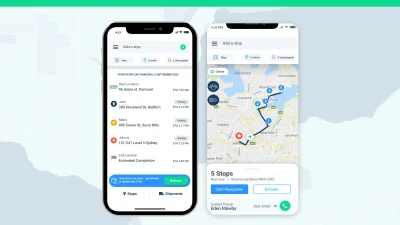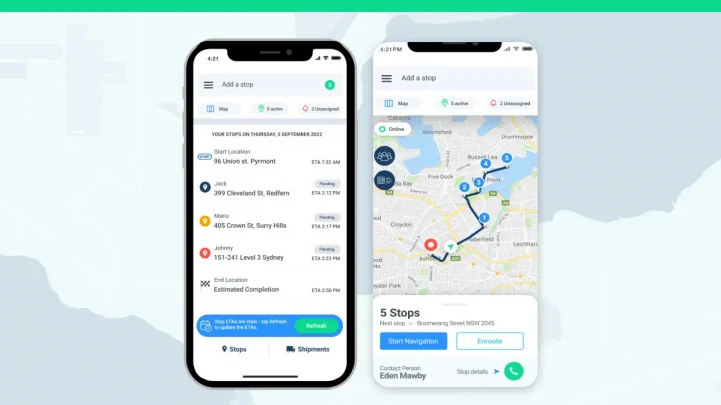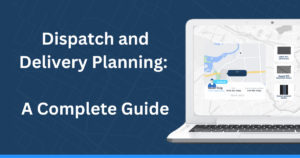The impact of GPS tracking on employee accountability is a topic of interest, as it raises concerns about invasion of privacy and micromanagement. On the other hand, GPS tracking can increase employee accountability at work when used properly.
The advantages of GPS tracking for employee accountability are examined in this article, including higher customer satisfaction, increased productivity, improved safety, adherence to rules, and chances for training and growth.
Also, it offers ways to strike a balance between GPS tracking and employee accountability, including incorporating workers in the implementation process, upholding privacy rights, emphasizing outcome-based accountability, and routinely monitoring and analyzing GPS tracking procedures. Employers can effectively use GPS tracking as a tool to enhance accountability while preserving a healthy work atmosphere by putting these suggestions into practice.
Positive Impact of GPS Tracking on Employee Accountability
Increased productivity
The ability to follow an employee’s location and actions in real-time for companies is one of the major advantages of GPS monitoring. By preventing unapproved breaks and personal usage of business automobiles, this promotes effective working methods.
Businesses can monitor the routes that employees take, the time spent at various sites, and the adherence of employees to their given tasks. Because employees are aware that their movements are being watched and discouraged from indulging in time-wasting activities while at work, this level of responsibility may result in an increase in productivity.
Enhanced safety
Moreover, GPS tracking can contribute to greater worker safety. Employers can monitor workers’ safety at all times when they do dangerous tasks or work in dangerous settings.
Thanks to GPS tracking, employers can easily find and assist needy workers, enabling prompt action in emergencies or after accidents. This might result in fewer accidents and injuries at work and better general safety practices.
Improve customer satisfaction
Customer service can be dramatically impacted by accurate delivery or service path tracking. Employers may monitor and improve delivery routes with GPS tracking, ensuring that deliveries are made promptly and as effectively as possible.
Customers are thus happier when their orders arrive on schedule and meet their expectations. Moreover, GPS tracking may provide customers with the most recent updates on the status of their deliveries, enhancing communication and transparency.
Compliance and regulations
Businesses can use GPS tracking to make sure that rules governing delivery schedules or safety procedures are followed. Employee compliance with the necessary rules and standards is monitored, which can lead to increased responsibility. For instance, GPS tracking can help monitor and ensure that personnel are delivering within the necessary duration if a delivery company is expected to fulfill specified delivery timetables, encouraging responsibility and regulatory compliance.
Training and development opportunities
Insights on employee performance, strengths, and growth needs can be gained through GPS tracking data, which can also be used for training and development. Companies can utilize this information to give employees individualized feedback, pinpoint training requirements, and encourage employee development.
This can increase accountability as workers work to raise their performance. For instance, if a worker habitually takes longer routes or frequently veers away from responsibilities allocated to them, the employer might offer feedback and training opportunities to help the worker improve their performance and be more accountable at work.

Strategies for Balancing GPS Tracking and Employee Accountability
Involve employees in the implementation process
Employee ownership and accountability can be increased by incorporating them in the implementation process. Companies can have open discussions with staff members and answer any queries or concerns they may have regarding GPS tracking apps.
The advantages of GPS monitoring for employees, such as enhanced safety procedures or improved work routes, should be made clear to them, as well as how it supports the objectives of the company. Employee buy-in and cooperation can be encouraged by fostering a collaborative environment where they are aware of the benefits of GPS tracking. This will improve accountability.
Respecting employee privacy rights
GPS tracking should only be conducted if employers can establish a legitimate business purpose or circumstance to justify it.
Achieving the ideal balance also requires respecting the privacy rights of employees. Employers should establish clear policies for its use to guarantee that GPS tracking is only used for job-related goals and not for invasively monitoring employees’ private life outside of work. To ensure compliance, employers must adhere to all GPS tracking-related laws and rules, including data protection and privacy legislation.
Focusing on outcome-based accountability
Focusing on outcome-based responsibility rather than micromanaging every action taken by employees is another tactic for achieving a balance between GPS tracking and employee accountability.
Instead of being utilized as a constant monitoring system, GPS tracking should be used as a tool to measure and improve performance. Instead of focusing only on tracking activities or locations, employers can use GPS tracking data to evaluate performance based on results attained by staff members.
Instead than making employees feel overly watched over or in control, this strategy can enable them to take responsibility for their job and hold themselves accountable for attaining goals.
Regularly monitoring and review of GPS tracking records
It’s critical to regularly monitor and assess location tracking procedures to make sure they effectively promote accountability without violating worker rights or adding undue strain.
Companies should routinely evaluate how GPS tracking technology is affecting employee morale, job satisfaction, and productivity and make any improvements. Refining rules and practices for better balance can be accomplished by asking staff members for input on their experiences with GPS tracking and addressing any issues that may come up.
To sum up, it takes clear regulations, open communication, employee involvement, respect for privacy rights, outcome-based accountability, and routine monitoring and evaluation to strike the correct balance between GPS tracking and employee accountability.
Employers can utilize GPS tracking as a tool to encourage accountability, productivity, and safety at work while simultaneously upholding workers’ rights and fostering a positive workplace culture by putting these strategies into practice.

Enhance employee accountability with Locate2u
The impact of employee GPS tracking tools on employee accountability can be positive when used appropriately by businesses. Implementing GPS tracking in your system can result in enhanced output, better safety, greater customer satisfaction, adherence to rules, and chances for learning and growth. To allay worries about privacy invasion and micromanagement, businesses must strike a balance between GPS tracking and employee accountability.
Take the first step towards enhancing employee accountability and improving your business operations with our reliable GPS tracking solutions. Contact us today to learn more and schedule a demo of our innovative tracking platform. Let us help you strike the right balance between GPS tracking and employee accountability for the success of your business.
Implement GPS tracking for your business today!













